It’s July 6th, and Google’s 2025 SEO Update is rolling out right now. I’ve been spending way too much time reading and watching other SEO people freak out about AI Overviews, zero-click searches, and “death of blogs” theories.
But after digging into what’s actually changing, most people are still missing the point.
This rollout isn’t about punishing AI content or favouring bigger sites. It’s about rewarding sites that demonstrate real expertise and authority. Google’s getting better at spotting who actually knows what they’re talking about versus who’s just stuffing keywords everywhere.
And honestly? It’s about time.
People are obsessing over keyword density, pumping out blogs, and meta descriptions while Google's actively rolling out changes that reward actual expertise.
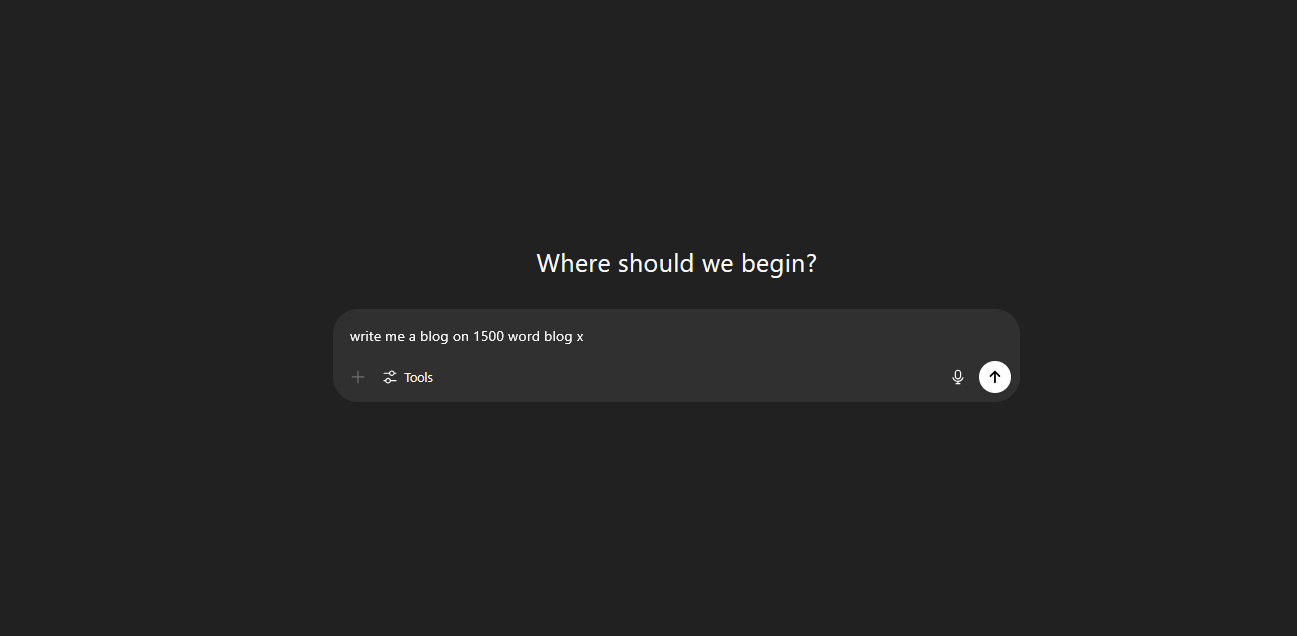
After growing my startup's organic traffic by 55,000% in 13 months a couple years back, I'm having to pivot and iterate everything I thought I knew about SEO.
I have audited upwards of around 50 websites for our SEO agency.
The first thing, I can tell you is first, people do not even have about pages; and if they do, it's very thin with bare basics. Second, they do not have a blog section.
And wether you love or hate blogs, they still hold weight for building topical authority and showing your EEAT (Experience, Expertise, Authority, and Trustwrothiness) to Google.
How Marcus Recovered from a 83% Spam Score in 2 Weeks
Two weeks ago, a gentlemen I met at conference, we will call him Marcus for privacy sake, asked came to me frustrated - his organic traffic was flat despite hundreds of blogs. When we dug into his site, we saw the problem instantly.
I looked up his backlink profile (which had a bunch of spammy links) and then I looked at his spam score on Moz...
This guy had a 83% spam score...
I couldn't believe my eyes.

Marcus runs a legitimate business with real customers (soley based on refferals) and decent revenue.
How did this even happen?
Turns out he was pumping out low-quality ChatGPT blog posts five times a week -
250+ thin blogs over a year.
No images. No insights.
Probably using prompts like “Write me a 1,000-word blog about landscaping.”
To make it worse:
- 5 generic services pages (~200 words each)
- No testimonials
- No interlinks
- No partner logos
- No FAQs
- Zero quantitative proof
In a world of noise, google is relying on signals. And those signals are trust. Below is an example of a trust signal on the66th homepage.
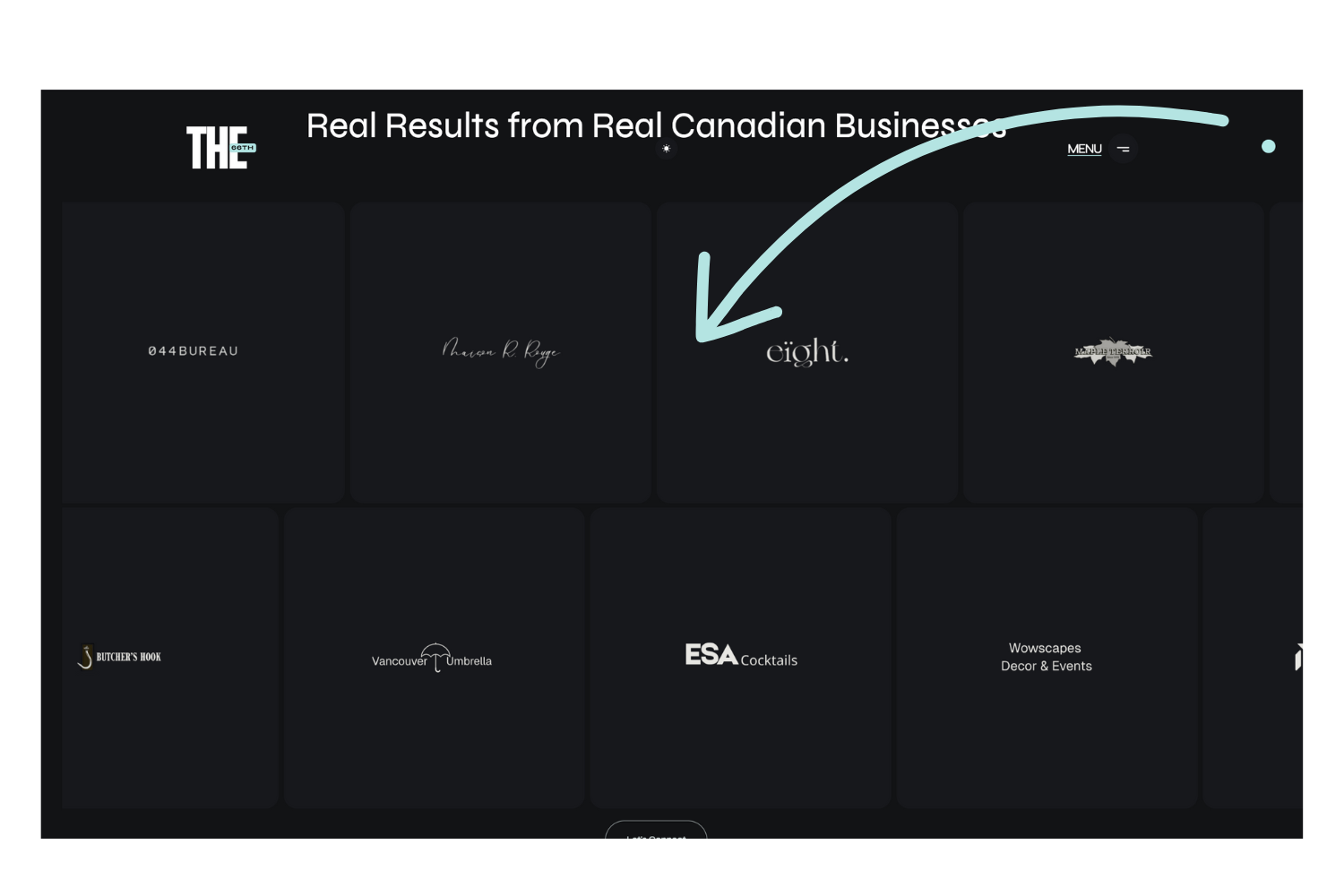
So I first added a bunch of social proof like testimonials and partner logos, I updated his about page, and added his author bio to his blogs, updated his service page content, I deleted around 70% of his content and disavowed his spammy links.
I'm not gonna lie, I was worried that I had destroyed his business.
But then something interesting happened. The remaining content started climbing for keywords that actually matter.
Two weeks later, his spam score dropped to 17%.
.png)
Still early to say, but so far, this approach is looking promising.
This whole experience taught me something important about what's happening with this June 2025 rollout. Google doesn't want sites that try to rank for everything anymore.
It wants sites that prove they know their stuff in specific areas. The rollout is doubling down on prioritizing depth over breadth.
This thin content SEO penalty was killing his rankings. By pruning low-quality content and rebuilding authority, we saw a dramatic spam score recovery.
Why Thin Content Hurts More in 2025
Google’s June 2025 update has fundamentally changed how thin content is treated.
Thin pages aren’t neutral anymore.
They actively:
- Trigger spam signals (especially if mass-produced with AI)
- Hurt domain-wide authority in the Helpful Content System (HCU)
- Fail to demonstrate unique expertise or original value
This is exactly what crippled Marcus’s site. Hundreds of generic, AI-generated posts created more noise than authority - so Google viewed his entire domain as low-quality.
By pruning 70% of his content and rebuilding trust signals, we saw his Moz spam score plummet from 83% to 17%.
5 Signs Your Content Is Thin
✔️ Under 500 words with no depth
✔️ Lacks original research, insights, or case studies
✔️ No internal or external links
✔️ Generic AI text anyone could have written
✔️ Zero images, videos, or supporting data
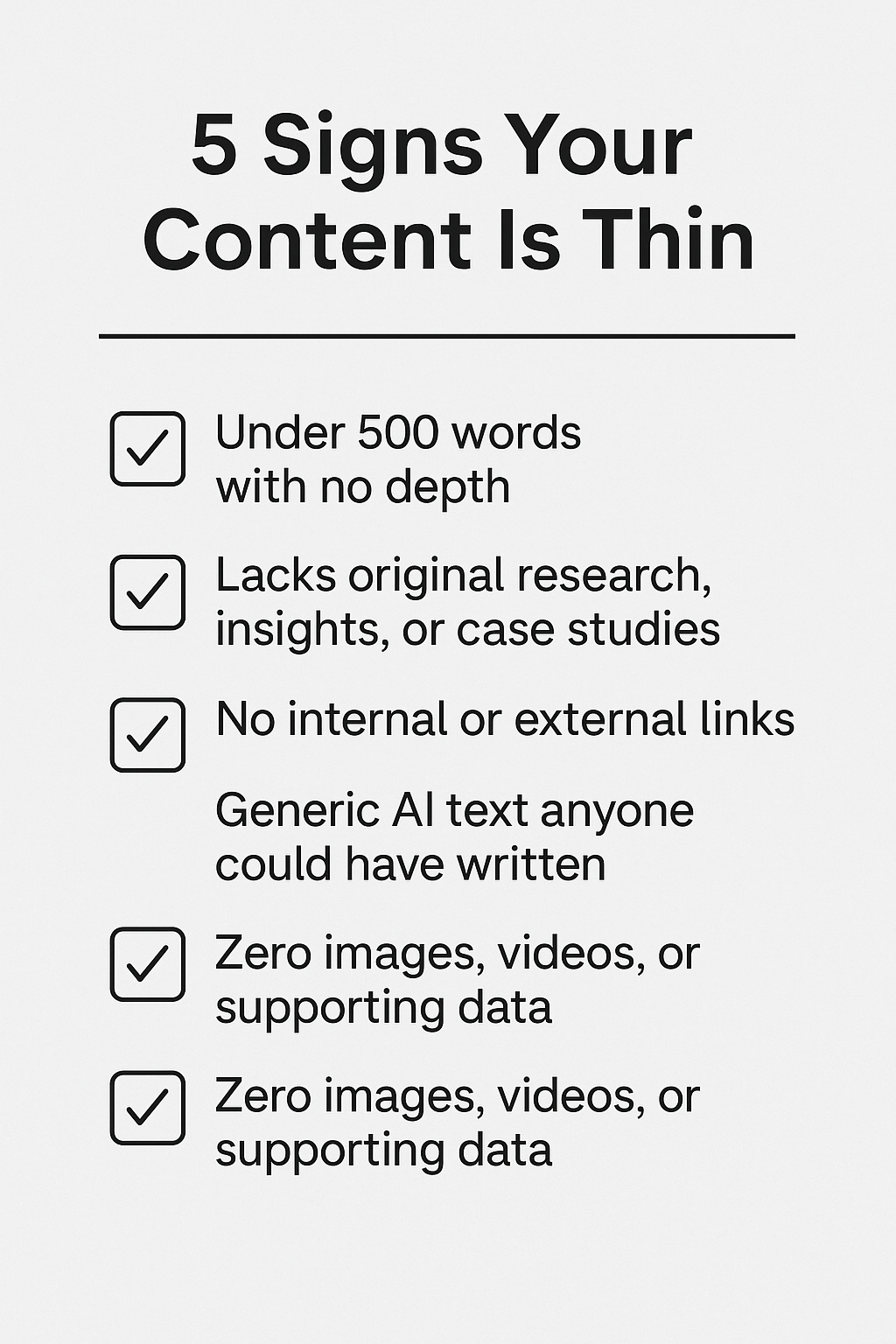
If any of these sound familiar, it’s time to delete, consolidate, or upgrade.
Pro Tip:
We help businesses recover from thin content penalties as part of our SEO Services for Small Businesses.
what we are doing at the 66th marketing agency
We are showing google that we have a real business ran by real people
I first revamped our About page; I went in much more depth.

When you click on an indivual's section on the about page, it will take you to our personal bio page.
We are using me, Liam, as an example.
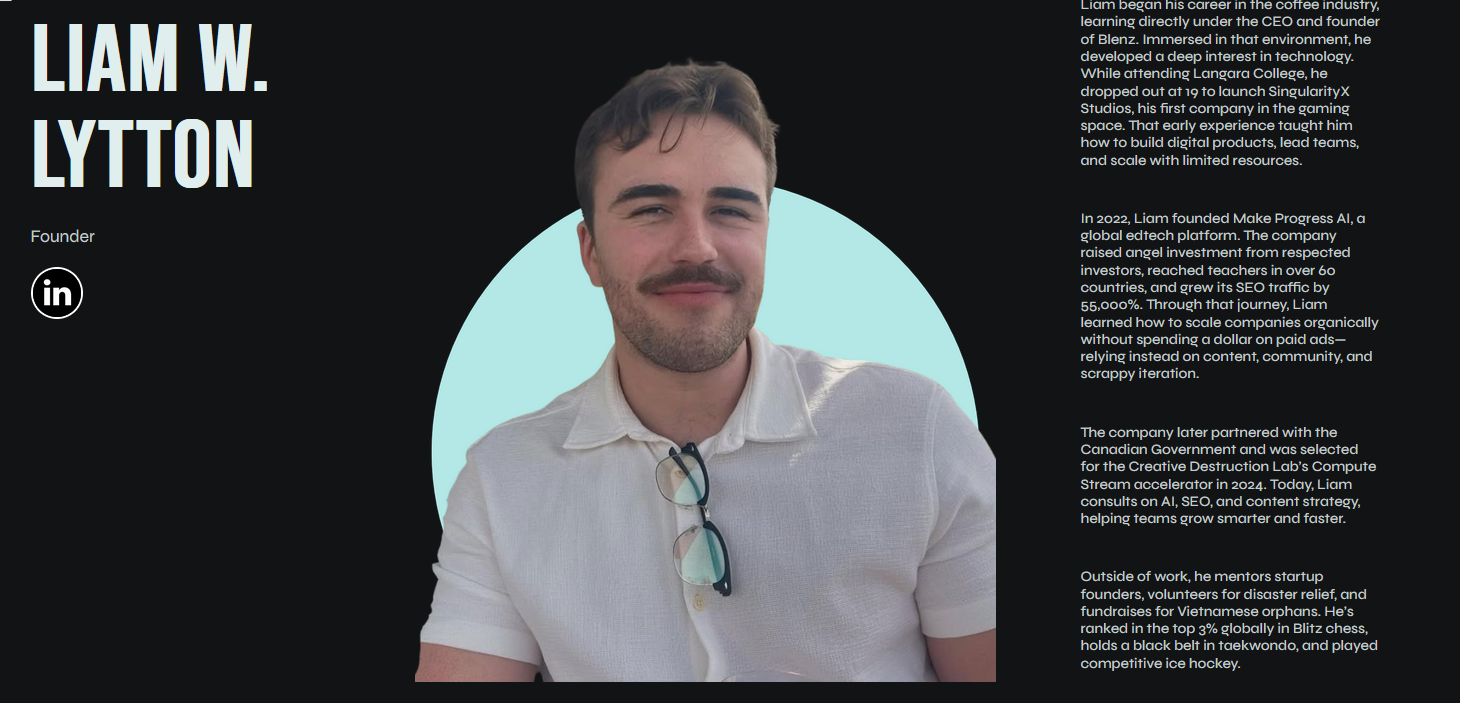
Let's break down this page.
Looking on the left side you'll see the following:
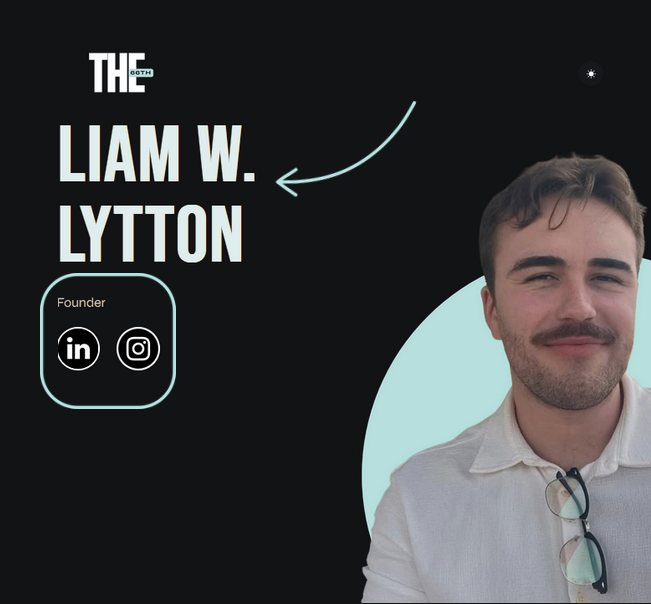
I have my full name, my title and linkeable social media handles.
These linkeable profiles create verifiable authority signals that prove to Google I'm a real person with legitimate industry expertise.
In the middle we have my author image; on the right hand side we have a deeper description on me -
- I have around a 200 word description on who I am.
- I have included true quantitative details like how I grew my own company's SEO by 55,000%.
- I have listed my achievements and some fun facts about me (to keep it human).
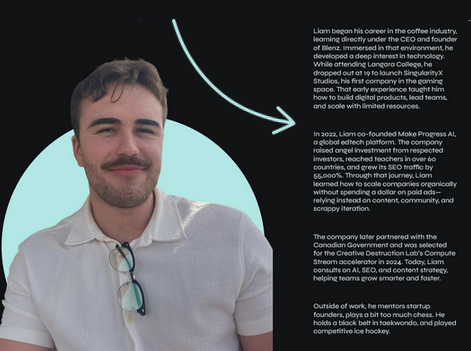
These concrete details and verifiable achievements demonstrate the authentic expertise Google rewards in its June 2025 update.
Now, going back to our about page.
I added three key sections to my that create authority signals I think Google rewards.
Why We Exist - shows my real bootstrapping story plus the Maple Terroir case study where we doubled their revenue in 6 months where I hyperlinked it to the case study.
Our Ethos - demonstrates transparency with weekly updates and full dashboard access.
Deep Tech DNA - shows things like Sofiya's technical background scaling products to millions of users at Amazon and Microsoft.
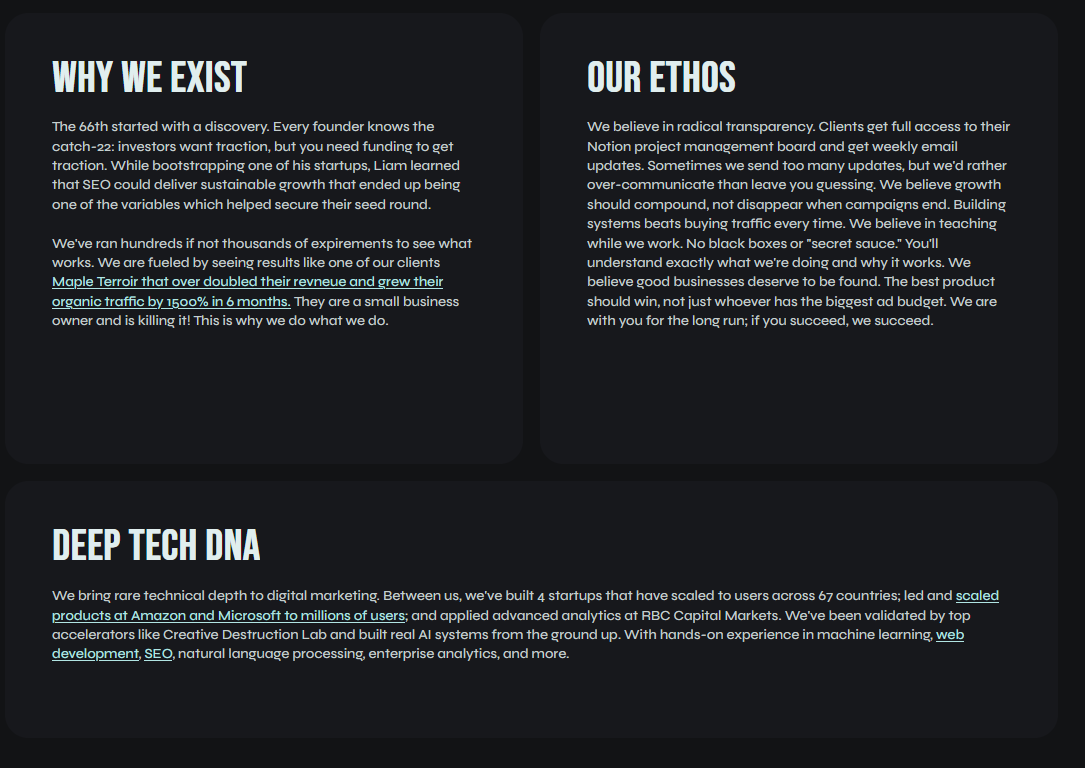
We added our certifications which serve as another layer of verification that Google can cross-reference to confirm your team's legitimate expertise in digital marketing and SEO.
Next, we will be adding a FAQ with relevant questions we have heard and our respective answers.
We are priotizting Clarity and user intent over keywords.
Here is what I have been doing thus far: keyword research from Ahref; find an easy to target keyword with low competition and decent search traffic; apply it to my H1, the first 100 words, the url, and meta title / description.
Don't get me wrong, I still do this... But, I am blending my strategy. Take a look:
For my homepage, where I know above the fold content is crucial; I went from "Digital Marketing Solutions that grow your bottom line" to "We help small businesses rank, convert, and grow."
But why would I do this when we can see there are great keyword metrics?
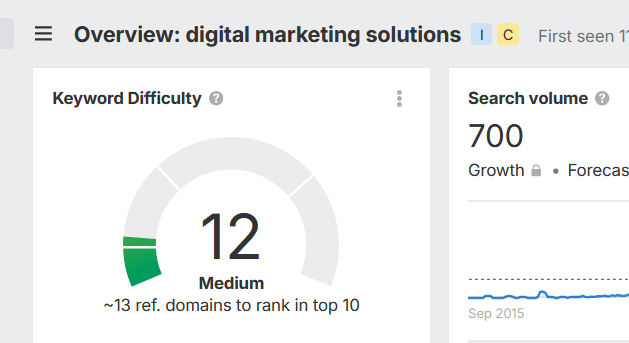
Digital Marketing Solutions is a great keyword and I still have it in my meta data; but, I decided that I want to optimize my most important page for clarity and simplicity.
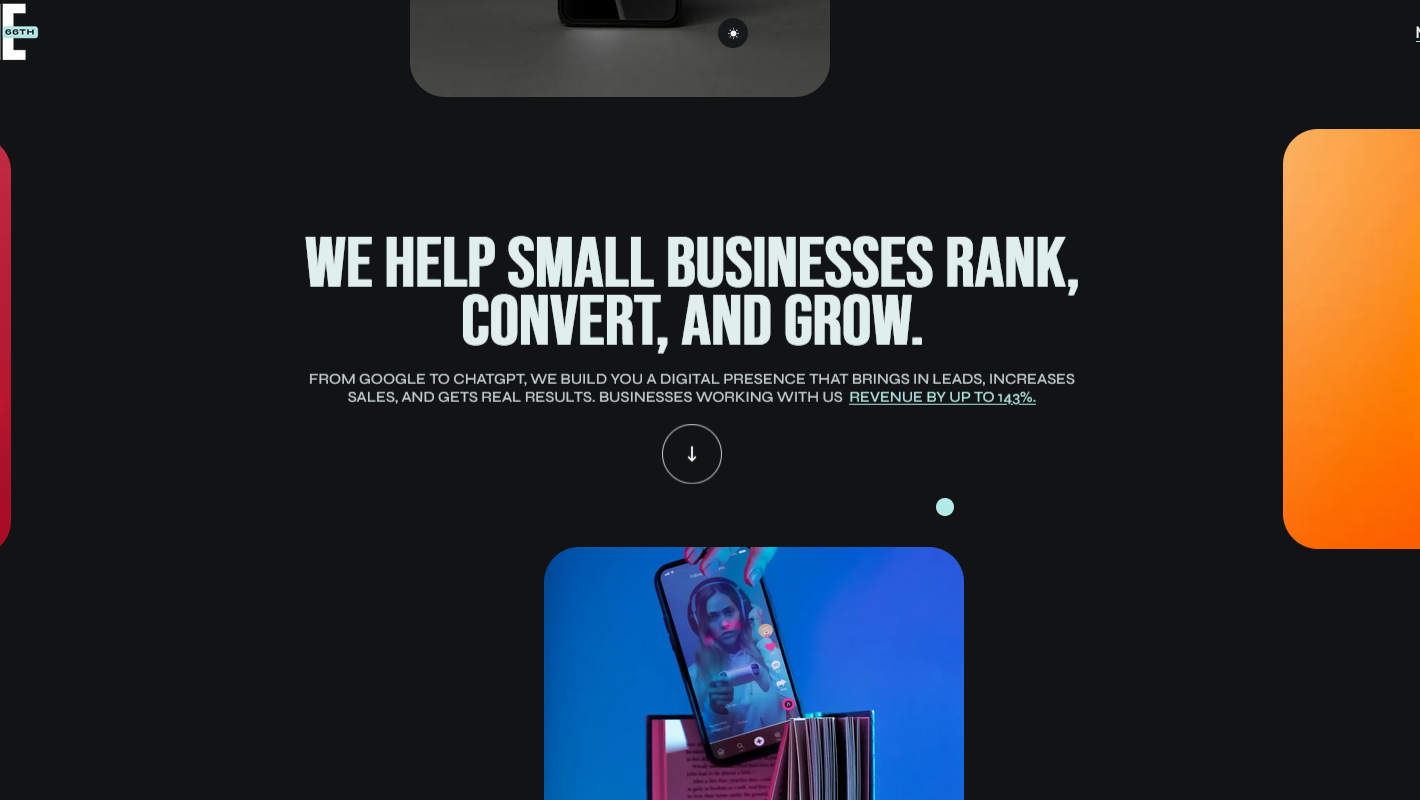
This extends to all content. I prioritize clarity over keyword optimization because satisfying user intent matters more than keyword density.
How I am balancing the two approaches
For key pages like my homepage I am focusing strictly on clarity and satisfying my ICP.
For some of my other pages, like my SEO Services page, I am using the long tail keyword "SEO Services For Small Businesses" which had great data metrics according to Ahrefs.
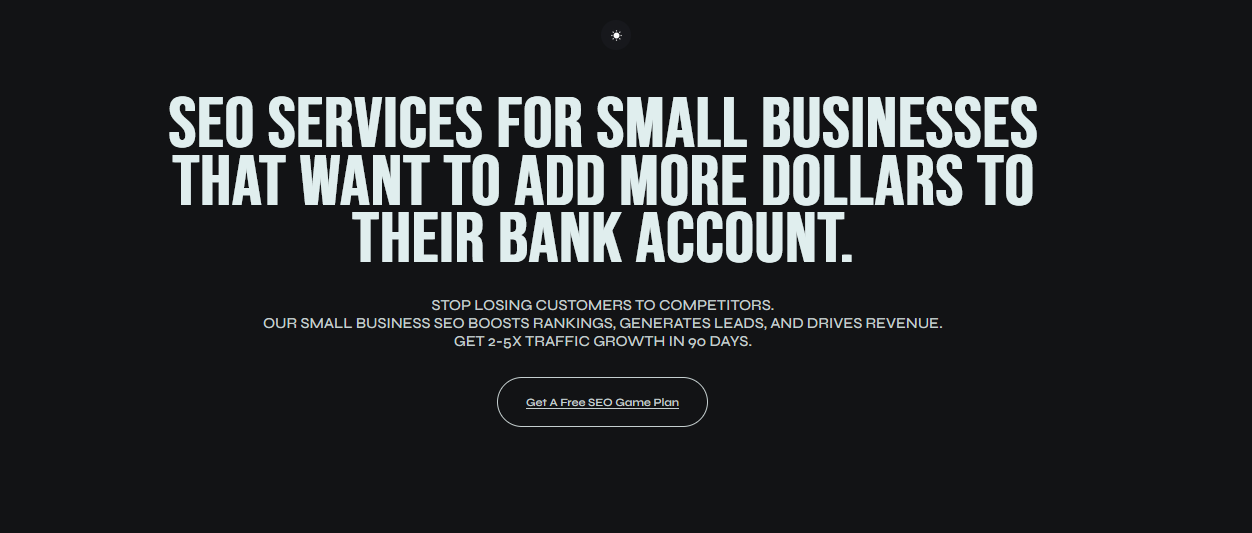
The Review Signal Strategy
Google Reviews are becoming a massive trust signal beyond just local SEO. I've been saying it for a while but I am double downing on it.
In my agency’s audits of over 50 websites, I noticed a clear pattern: sites with robust, authentic review profiles are consistently outranking competitors. Especially with the new rollout, where trust and EEAT are more important; I think this is crucial for anyone's SEO strategy.
For local queries, sites with strong review profiles are showing either at the top or just below the top SERPs.
And as AI Overviews continue to grow (now appearing in 13.14% of all searches), strong review signals provide a defense against zero-click results in my opinion.
When I search "best taco place vancouver" my first instinct is to press on the that first result.
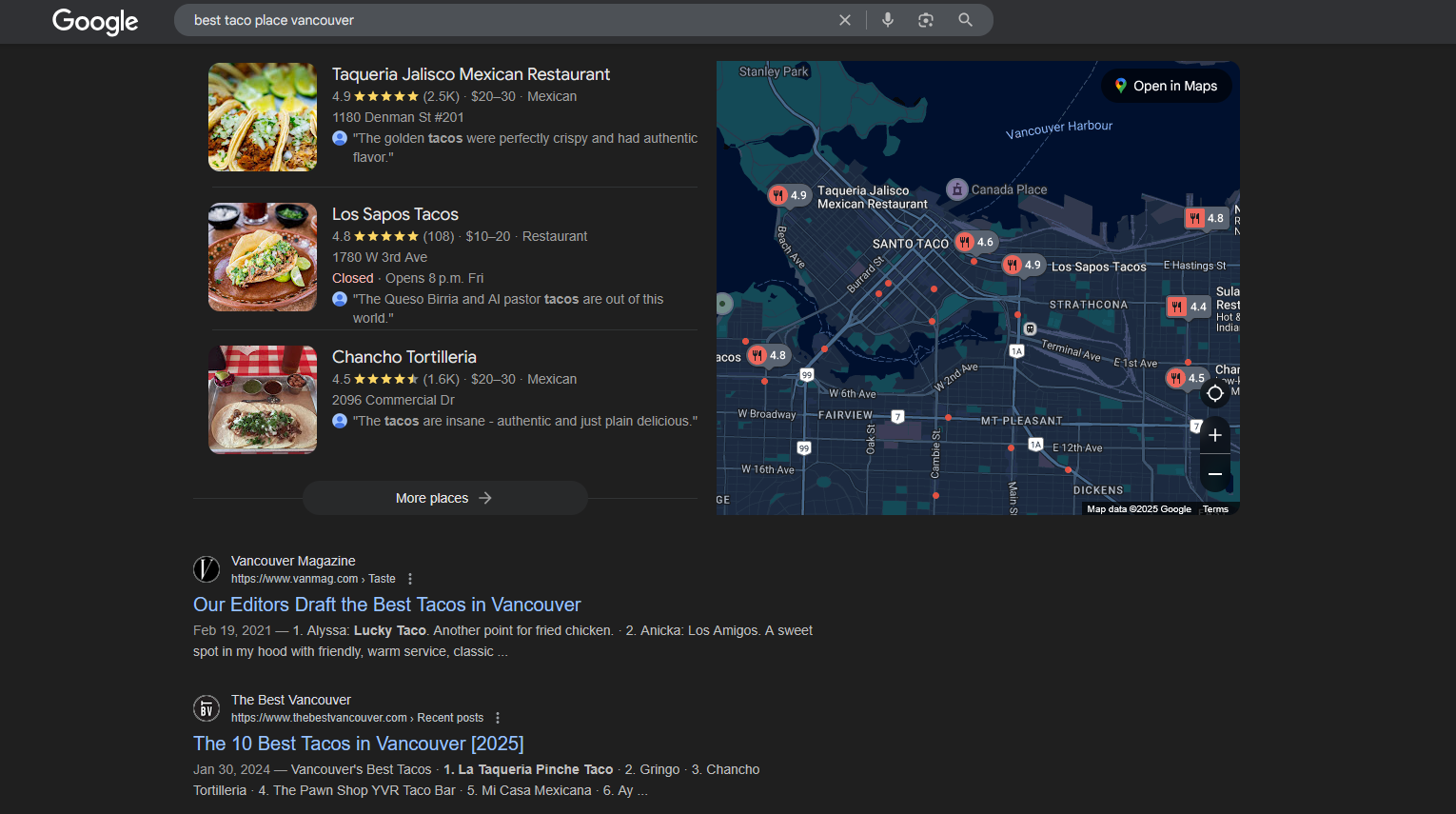
They have MORE but also BETTER reviews.
Side note... *We really are social creatures, we just follow the herd!
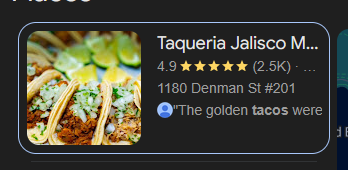
I am very bullish on local SEO and suggest to all my clients to keep it as a main priority. Not just for SEO signals of trust, but a for general lead generation.
Tools and Resources I'm Using
- For Content Audit: I am using this checklist on Google sheets.
- For Review Management: Direct outreach to satisfied clients with simplified review process like a QR code or a link.
- For Content Creation: I am doing about 80% writing by hand and using AI to assist when i have blocks. It takes way longer but it's way better content. I am also using personal experience and case study data.
Common Pitfalls to Avoid
Don't Keep Thin Content: If it could have been written by anyone, it probably shouldn't exist.
Don't Fake Expertise: Google can detect generic author bios and manufactured authority.
Don't Prioritize Keywords Over Clarity: User satisfaction metrics matter more than keyword density.
Don't Ignore Reviews: They're becoming one of the strongest trust signals available in our opininion.
Don't Use AI Carelessly: Content that reads like ChatGPT will be increasingly penalized.
What I Think This All Means
The June 2025 rollout is rewarding sites that demonstrate genuine expertise through clear, helpful content backed by real results. My approach combines comprehensive author authority systems, clarity-first content, quantifiable social proof, strategic review signals, and ruthless quality control.
Building sites that serve users so well that Google has no choice but to rank them as this rollout continues. The sites that will win aren't those with the most content or perfect keyword optimization.
They're the ones that clearly demonstrate expertise and provide genuine value.
Based on my testing and the results I'm seeing during this rollout, this approach is showing signs that it works. The key is having the courage to delete what isn't working and double down on what makes you genuinely authoritative in your space.
Actually, let me be honest here. The hardest part isn't the technical stuff. It's admitting that half your content sucks and having the guts to delete it.
But if Marcus's 86% spam score taught me anything, it's that sometimes you have to burn it down to build it back up properly.
.webp)



